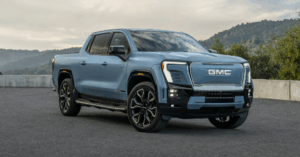
In this current social climate, discrimination is a hot button issue, so much so that we forget that discrimination doesn’t just apply to race. The defined discrimination is the unjust or prejudicial treatment of different categories of people or things. The dictionary goes on to specify that it typically occurs against people of different sex, religion, or race. However, it can happen anywhere and against anyone.
There have been many businesses accused of discrimination, including such giants as the healthcare industry. They’ve been accused of prejudice against those without insurance. It happens quite a bit with other businesses as well, which leads to the question, does the auto industry discriminate?
Seeing People Coming
Of course, we all want to say that our industry would never discriminate in any way, but that isn’t true. However minor you think it is, every business has its tendency to single people out for their differences. In the door to door sales industry, if given a choice between a mansion and a shack, which would you choose? The answer is obvious, but this is a form of discrimination.
In the automotive industry, there is a lot of potential for discriminatory practices, as there always is when large sums of money are involved. While the perfect short answer would be no, they don’t; the reality is that they probably do in away. This doesn’t always mean that they’re ignoring customers that they don’t think to have money or excellent credit. It could mean that they push harder for add-ons with people that they know have a healthy bank account. It could also mean that they’re less likely to ask someone with terrible credit to upgrade to the next trim level or ask if they want the excessive and unnecessary add-ons they offer. However, all people wish to have similar experience within a car dealership. They want to walk in, be approached, take a test drive, talk to some people, and drive away with a new car.
Perception
They don’t want their salesperson to play to their assumed strengths. They want to be treated the same way across the board but is this type of treatment possible. Can a salesperson abandon their desire for better commissions in an attempt to treat every customer equally? Probably not, but it doesn’t mean that every salesperson is looking at you as a walking dollar sign. In an auto dealership, this is where discrimination would most likely occur, as it relates to financial status. The danger of discriminating based on looks is that it is straightforward to be wrong about someone’s financial situation. When it comes time to check their eligibility for a loan and account balances, you may have already put your foot in your mouth. The client may be combative and resentful of your obvious distaste for their assumed monetary status.
A Book By Its Cover
The lesson to learn from this is that dealership employees probably shouldn’t make assumptions based on people’s appearances or their employees. Some doctors have horrible credit and can’t save a dime, while a grocery store employee may have a pretty healthy account balance. Lesson learned. Most salespeople, when asked, will say that they don’t “see a person coming.” Meaning they don’t anticipate the likelihood of a sale until they get down to the financials. If a person has an incredibly healthy checking and savings accounts and they’ve shrugged off the cost of GAP insurance, the chances are that salesperson is going to push for everything they can, possibly at an exaggerated rate. So when we want to say that we don’t discriminate, we’re not precisely wholly truthful.
However, a salesperson with whom I am friends with, says she doesn’t care if you have a hundred dollars in your checking account or a million. She will treat you precisely the same. This type of behavior is probably not the norm. It’s too easy in a sales-based business to flock to the people that look like they can afford more. Whether it is the right way to think, or not. We don’t always make the best calls when money is concerned, so the long answer is that they probably do discriminate, but not in the way you think they might.
This post may contain affiliate links. Meaning a commission is given should you decide to make a purchase through these links, at no cost to you. All products shown are researched and tested to give an accurate review for you.








